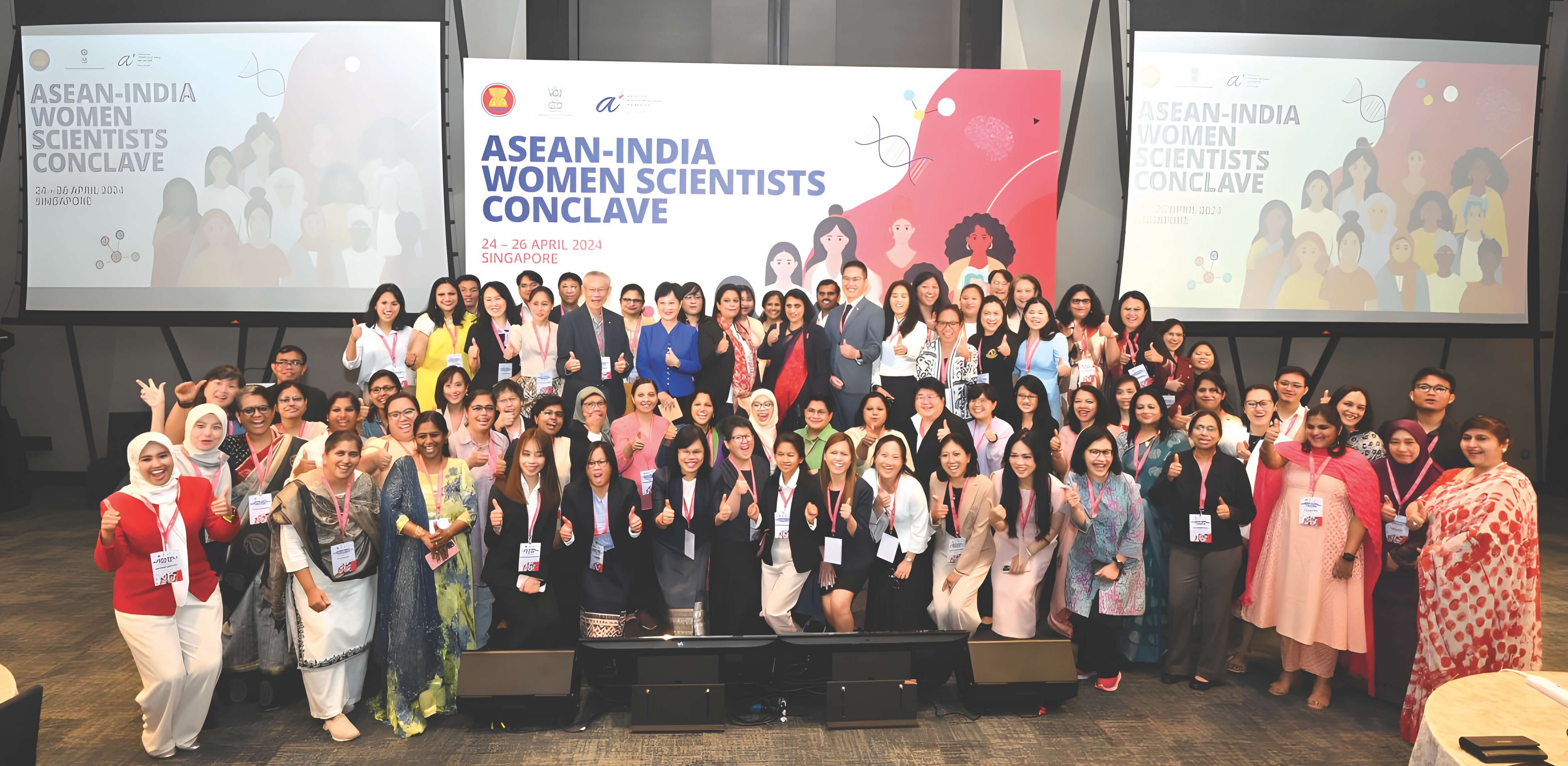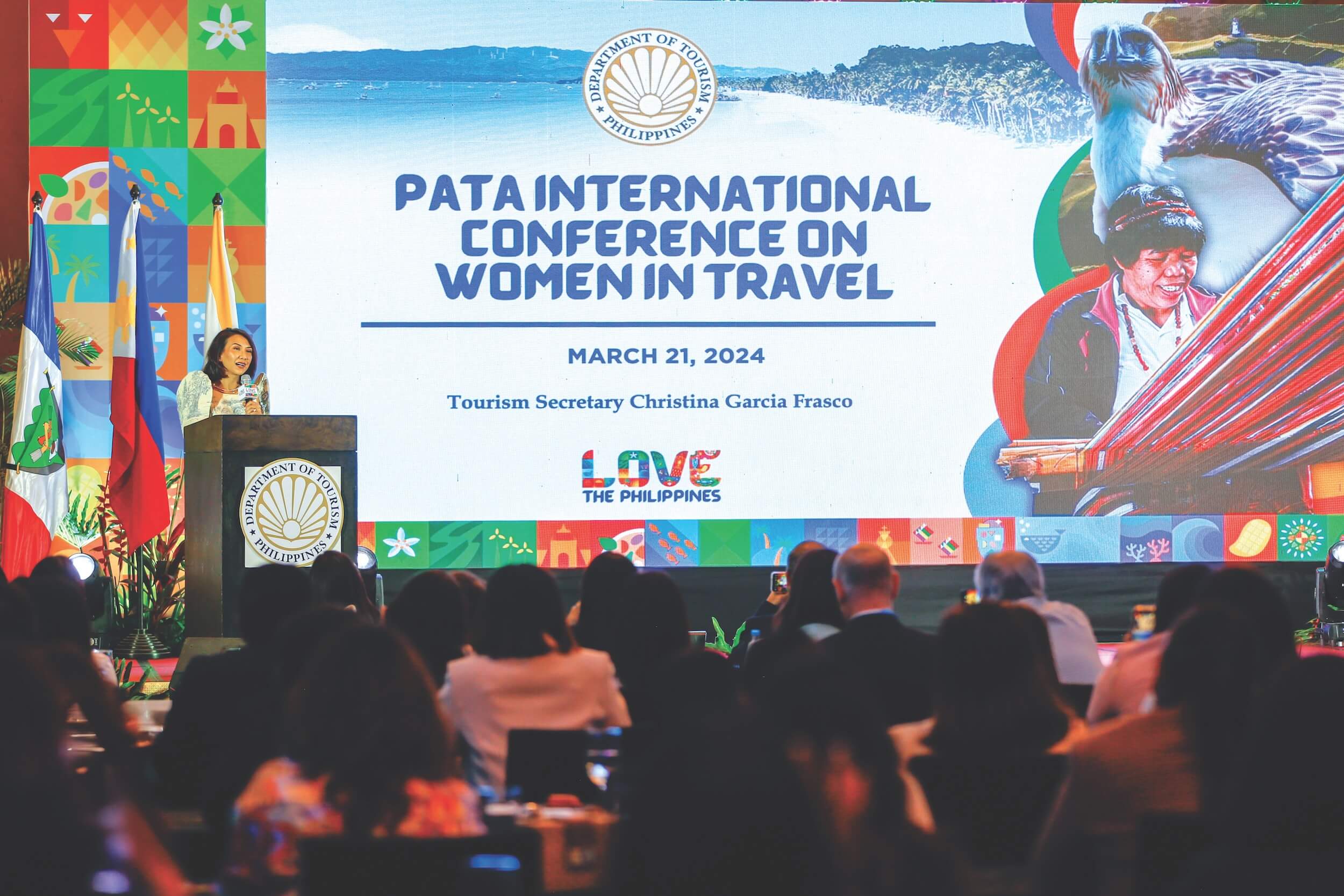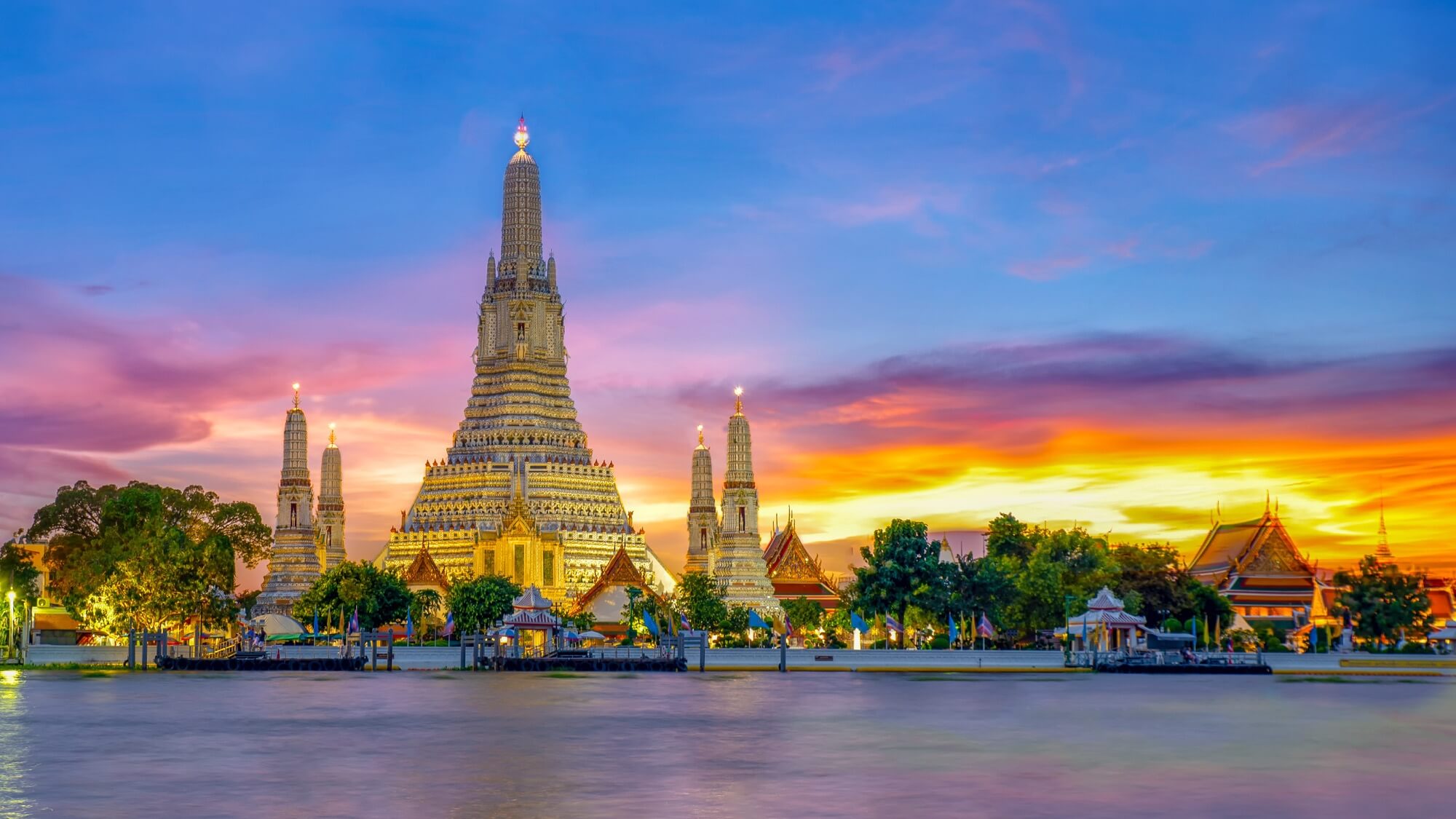



The tourism sector is a significant contributor to the ASEAN Economy. Before the COVID-19 pandemic in 2020, the travel and tourism industry generated approximately 12 per cent of ASEAN’s combined GDP and provided jobs to 42 million ASEAN people (ADB, 2022). Nonetheless, international tourist arrivals plummeted by more than 80 per cent, and tourism revenue dropped by 75 per cent during the pandemic (Lin, 2022). After the World Health Organization (WHO) announced the end of the pandemic in May 2023, the number of international tourists going to ASEAN has steadily increased. The region saw a 153.09 per cent year-on-year increase in international arrivals based on the preliminary figures of 2023 (ASEAN, 2024). According to the UN Tourism (formerly the United Nations World Tourism Organization or UNWTO), the Asia-Pacific region has witnessed a noteworthy recovery, reaching 65 per cent of its pre-pandemic tourism levels following the reopening of numerous markets and destinations (UN WTO, 2024). This recovery indicates the potential within the ASEAN region to cater to the changing demands of post-pandemic travellers.
As the tourism sector rebounds from the pandemic, ASEAN is determined to “build forward better,” strengthen the industry’s long-term resilience and make it more sustainable.
Sustainable tourism is a long-standing concept that has now emerged as a crucial factor in establishing or maintaining a destination’s strong reputation and competitive brand. This approach ultimately strengthens relationships with local communities, visitors, and other stakeholders. Particularly during uncertain times, earning the stakeholders’ trust is seen as a strategic imperative.
With this in mind, the ASEAN Tourism Ministers endorsed the ASEAN Framework on Sustainable Tourism Development (hereafter the framework) in January 2023. This multi-sectoral framework outlines focus areas towards achieving the vision of sustainable tourism in ASEAN. It seeks to capitalise on the work that the sector is already undertaking, along with other relevant sectors in the ASEAN Community, that has direct implications for the pursuit of sustainable tourism development.
Vision and strategic goals
The framework states the ultimate vision in the long-term is to realise “An ASEAN region that is recognised as a quality sustainable tourism destination, which promotes the economic prosperity, welfare, and engagement of the local community; protects and develops its natural environment and culture; and provides a high-quality experience to responsible and sustainable-minded visitors/tourists.” The overarching operational goal is to continue promoting the tourism sector’s growth and development as a critical contributor to overall economic growth and development, but with a stronger awareness and focus on tourism activities’ environmental and socio-cultural impacts. This approach entails undertaking initiatives to reduce tourism’s adverse footprint on the environment and communities and ensuring their well-being.
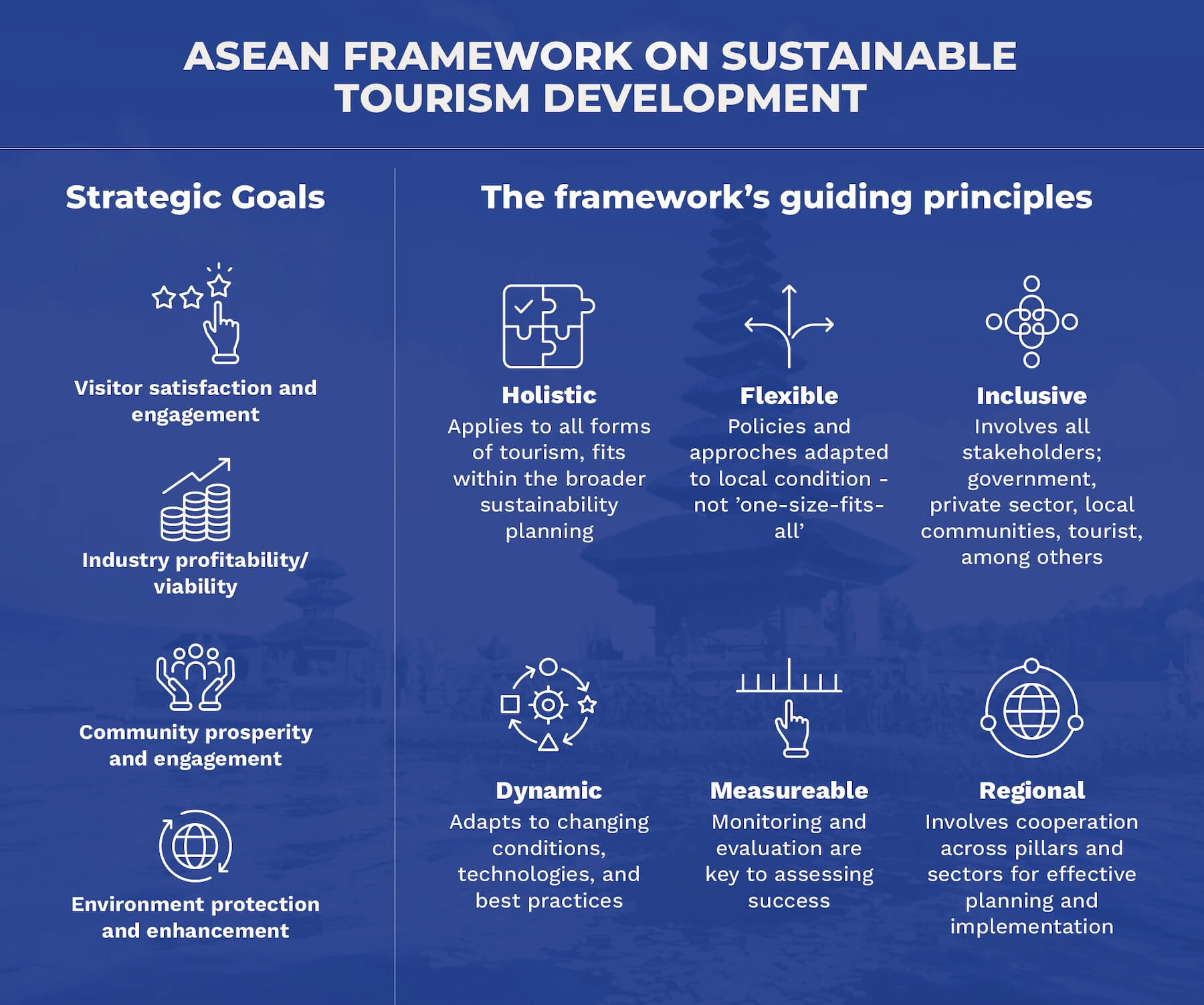
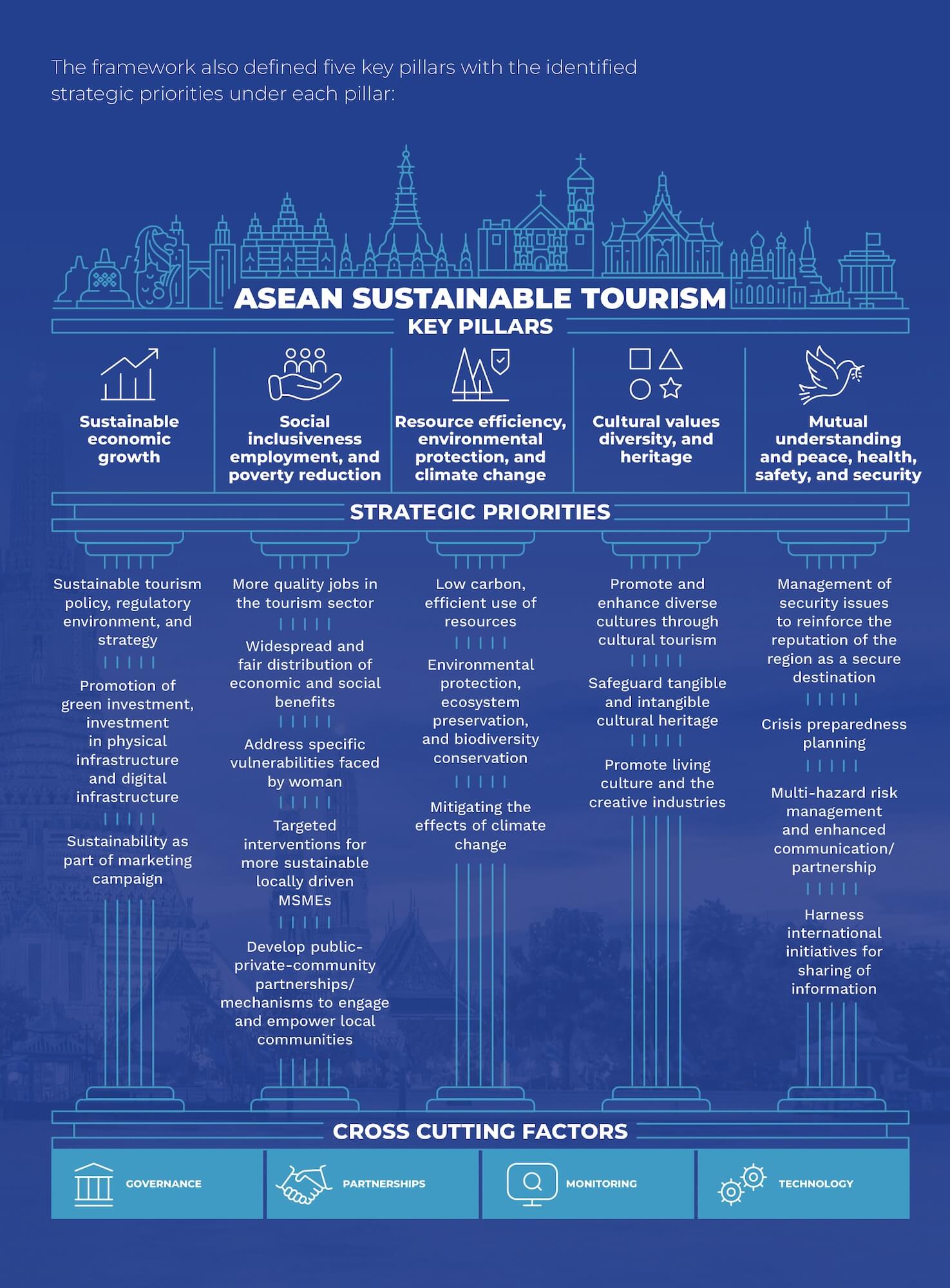
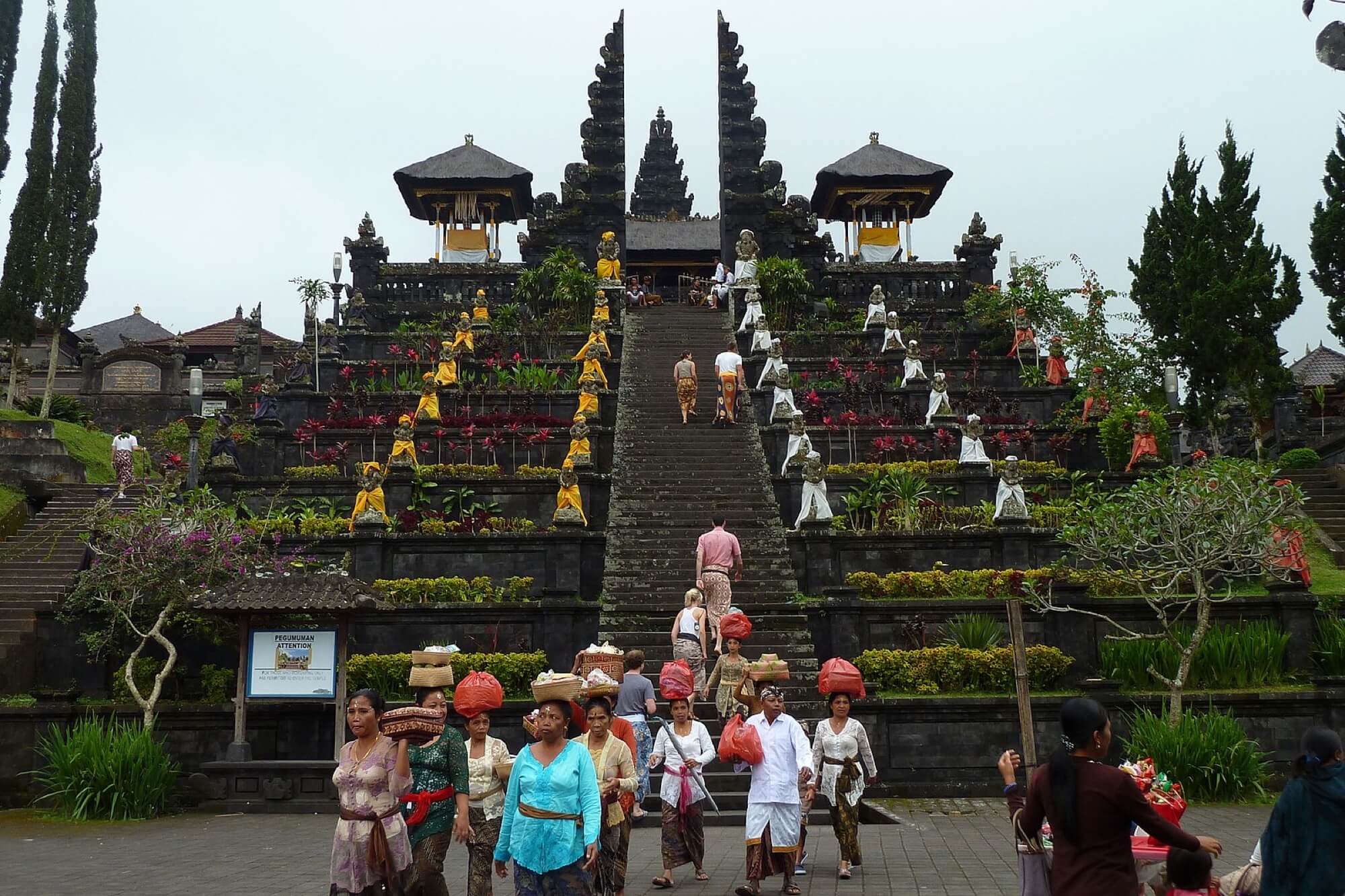
Action roadmap for sustainable tourism development in ASEAN
Aimed at providing tourism stakeholders with a deeper understanding of how to effectively apply the principles of sustainability, inclusivity, and resilience of tourism, the ASEAN Tourism Ministers endorsed the Action Roadmap for Sustainable Tourism Development in ASEAN in January 2024.
Building upon the framework, the roadmap serves as a comprehensive and long-term strategic plan for the region. While the framework aimed to establish a long-term vision for sustainable tourism development in ASEAN, and define the overarching operational goal, strategic goals, guiding principles, and key pillars, the roadmap takes it a step further. It provides stakeholders with the necessary strategies, actions, and best practices to achieve the key priorities identified through consultations and surveys with the ASEAN Member States and external partners.
The roadmap is envisioned as a regional guiding framework, enabling the ASEAN Member States to align their sustainable tourism strategies with the overarching goals of ASEAN, thus fostering a cohesive and integrated approach to sustainable tourism development in the region through country-level and region-wide activities. This will be crucial for ASEAN’s efforts to promote resilient and sustainable development.
By prioritising sustainable practices, ASEAN promotes resilience and positions itself as a responsible and environmentally conscious tourism destination. Promoting sustainable tourism practices, such as ecotourism, helps protect and conserve natural resources. On this note, the Lao PDR, as the current Chair of ASEAN, has included the development of the ASEAN Ecotourism Standard as one of the Priority Economic Deliverables under its ASEAN Chairmanship in 2024
Benefits for Business in ASEAN
Providing common vision and enabling multisectoral collaboration
Tourism businesses are starting to perceive adopting sustainable practices as an opportunity rather than an obstacle, recognising that it makes good business sense. Today, the tourism industry is arguably more mindful that the main priority of sustainability is to ensure long-term economic benefits, equitably distributed across businesses of different sizes, while ensuring the responsible use of finite natural resources. For example, Traveloka, one of the leading online travel platforms in Southeast Asia, has been providing its hotel partners with training programmes on how to be more sustainable in their business operations (Ignatius, 2023). The framework will further encourage and incentivise businesses to participate in the transformation toward sustainable tourism.
As tourism is a cross-cutting sector, cooperation between industry players will be crucial to advancing the progress towards sustainable tourism development in ASEAN. Accordingly, the framework provides a common vision for business with clear guidelines and principles for businesses to follow in promoting sustainable tourism practices.,
The roadmap identifies the relevant stakeholders, including the private sector, for each strategy and activity. The clarity in the direction helps businesses understand their role and responsibility in contributing to sustainable development. It also enables them to identify potential collaborators on their sustainability activities, which are relevant to the strategies identified in both framework and roadmap. The introduction of the ecotourism standard, once adopted, will also further streamline standards across the region and ensure consistency for businesses operating in multiple ASEAN countries, reducing confusion and facilitating compliance.
Advancing ASEAN tourism’s industry competitiveness
More tourists are seeking sustainable travel options. Data from a study by Expedia in 2022 showed that 90 per cent of travellers globally sought sustainable options when booking a trip and that travellers from the Asia Pacific region were willing to pay 41 per cent more to ensure their travel was sustainable (TTG Asia, 2022). The collaborative moves to sustainable tourism in ASEAN encouraged by the framework and the roadmap will provide the ASEAN Tourism industry with a competitive advantage in the market. The active engagement of ASEAN in sustainable tourism will also enhance the region’s reputation among travellers, stakeholders, and the broader community, leading to increased customer loyalty, positive word-of-mouth, and favourable media coverage, which are all beneficial for tourism industry growth.
This article is an edited version of the ASEAN for Business Bulletin, which can be downloaded at the following link: https://asean.org/wp-content/uploads/2024/03/ ASEAN-for-Business-Bulletin- February-2024.pdf




